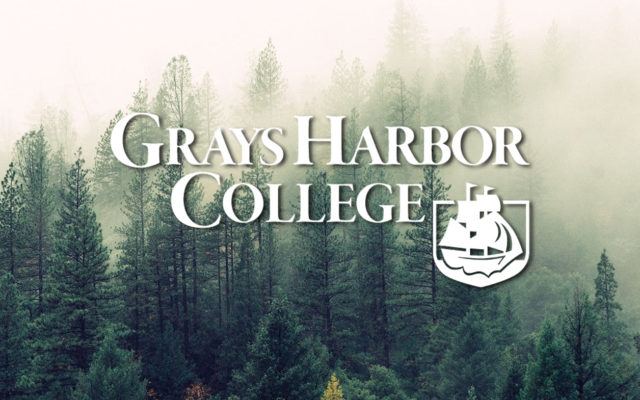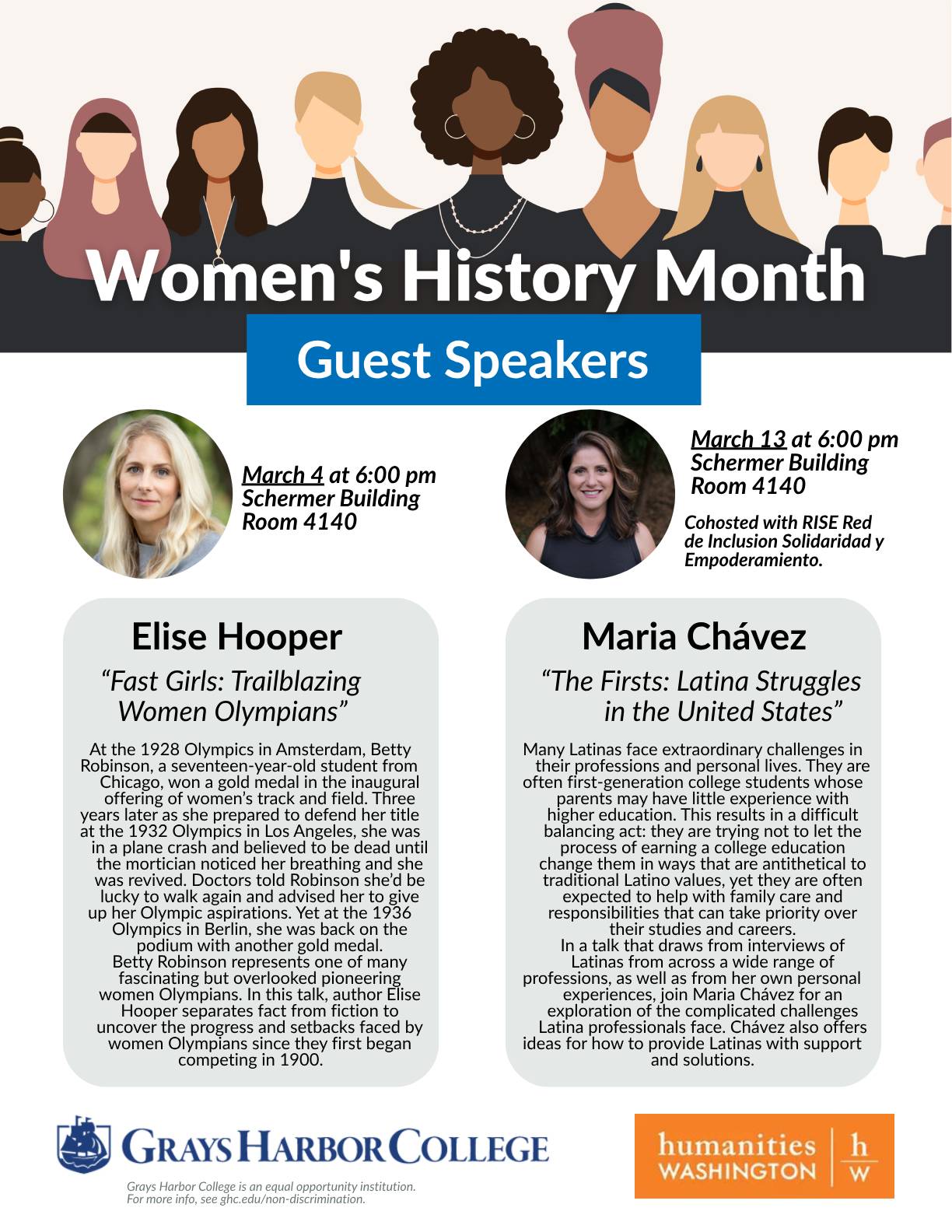GHC featuring two speakers as part of Women’s History Month

The Grays Harbor College announced that as part of Women’s History Month in March, the college is hosting two events with guest speakers from Humanities Washington’s Speakers Bureau.
The presentations are open to the public and free to attend.
Elise Hooper will be on campus on March 4, with Maria Chávez speaking on March 13.
Both presentations will take place on GHC’s Aberdeen campus in room 4141 (1620 Edward P. Smith Dr. in the Schermer/4000 Building).
Information from GHC:

Elise Hooper will lead the presentation on March 4, titled “Fast Girls: Trailblazing Women Olympians.”
At the 1928 Olympics in Amsterdam, Betty Robinson, a 17-year-old student from Chicago, won a gold medal in the inaugural offering of women’s track and field. Three years later as she prepared to defend her title at the 1932 Olympics in Los Angeles, she was in a plane crash and believed to be dead until the mortician noticed her breathing and she was revived. Doctors told Robinson she’d be lucky to walk again and advised her to give up her Olympic aspirations. Yet at the 1936 Olympics in Berlin, she was back on the podium with another gold medal. Betty Robinson represents one of many fascinating but overlooked pioneering women Olympians. In this talk, Hooper separates fact from fiction to uncover the progress and setbacks faced by women Olympians since they first began competing in 1900.
Hooper spent several years writing for television and online news outlets before getting a Master of Arts and teaching high school literature and history. Her debut novel The Other Alcott was a nominee for the 2017 Washington Book Award. Three more novels—Learning to See, Fast Girls, and Angels of the Pacific—followed, all centered on the lives of extraordinary but overlooked historical women.

Maria Chávez will lead the presentation on March 13 titled, “The Firsts: Latina Struggles in the United States.” GHC is cohosting this event with RISE Red de Inclusion Solidaridad y Empoderamiento.
Many Latinas face extraordinary challenges in their professions and personal lives. They are often first-generation college students whose parents may have little experience with higher education. This results in a difficult balancing act: they are trying not to let the process of earning a college education change them in ways that are antithetical to traditional Latino values, yet they are often expected to help with family care and responsibilities that can take priority over their studies and careers. In a talk that draws from interviews of Latinas from across a wide range of professions, as well as from her own personal experiences, Chávez explores the complicated challenges Latina professionals face. Chávez also offers ideas for how to provide Latinas with support and solutions.
Chávez is a professor of political science at Pacific Lutheran University specializing in American government, public policy, and Latino Politics. As a first-generation college graduate herself, her work centers on the progress of and barriers to Latinos in the U.S. She was awarded the American Political Science Association’s Best Book in Latino Politics twice: first for Everyday Injustice, and most recently for Latino Professionals in America.




